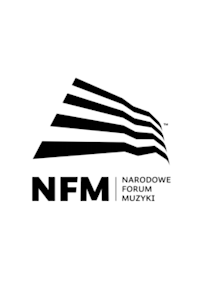Great Mass in C minor K. 427, Mozart
Dela
International Festival Wratislavia Cantans (2015)Information från konstorganisation (verifierad av Operabase)
Medverkande:
12 - 13 september 2015 (2 föreställningar)
Besök webbplatsGreat Mass in C minor K. 427 by Mozart, Från (2015/2015), Dirigent Giovanni Antonini, NFM (Narodowe Forum Muzyki), Breslau, Polen
Dirigent
Medverkande
Soprano I
Tenor
Bass
Besättning
Körledare
Ensemble
Övriga
Lär dig mer om kompositör
Lär dig mer om musikaliskt arbete
Spelplatser
Plats ej meddelat
Breslau, Polen
NFM (Narodowe Forum Muzyki) | Breslau, Polen





